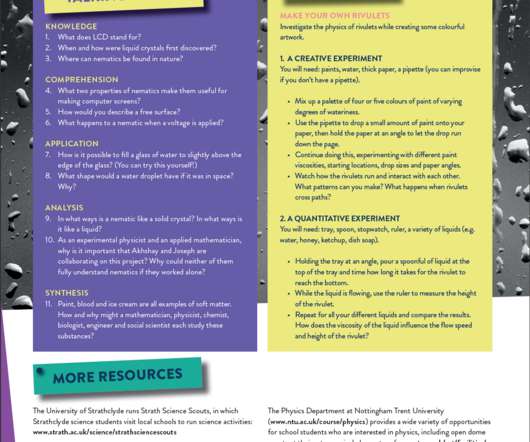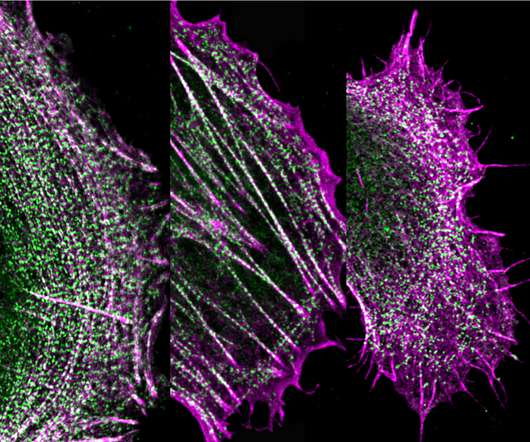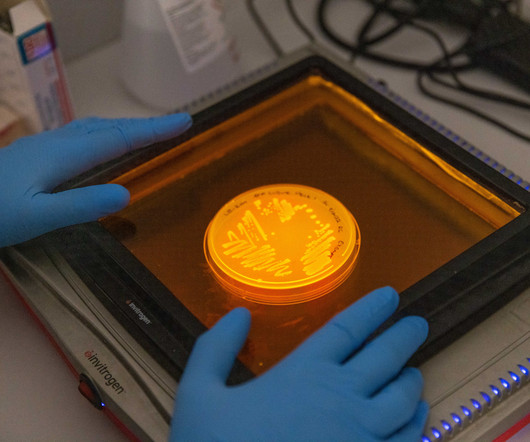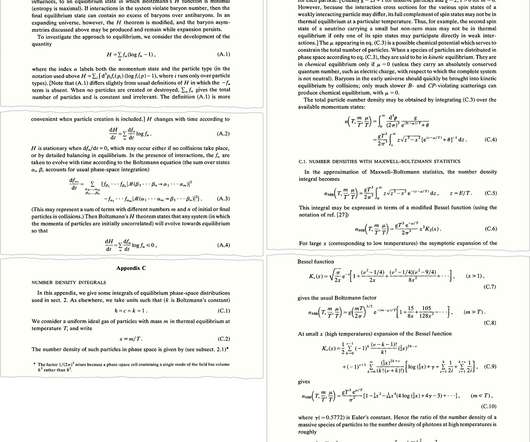Behind the screens: the crystals that flow like rain down a windowpane
Futurum
AUGUST 18, 2022
When was the last time you looked at a computer, TV, phone or tablet? He starts by considering some basic principles of physics – that the momentum and energy of a system are always conserved. The problem is that considering every possible effect that contributes to momentum or energy is complicated,” he explains.













Let's personalize your content